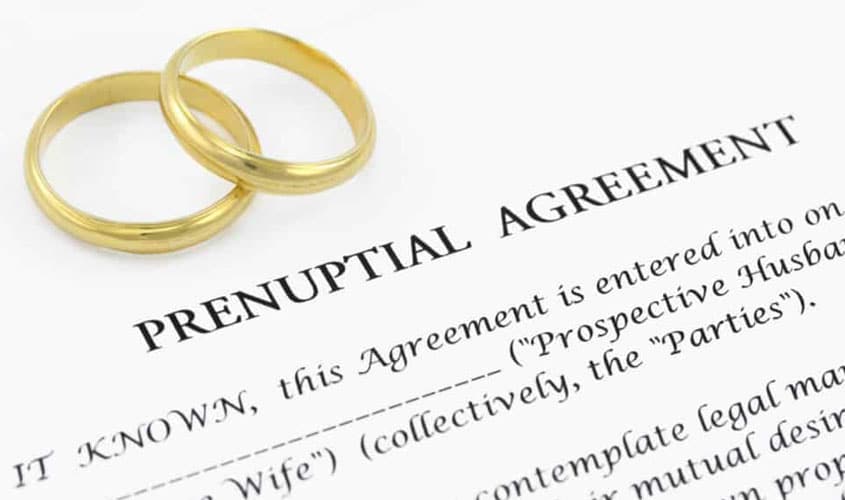Generally speaking at the end of a marriage, civil union or de facto relationship which qualifies under the Property Relationships Act (“the Act”), the Act states that all relationship property including the family home (regardless of how or when it was purchased) will be open to a claim for equal sharing between the parties in the relationship. You may be in a situation where you purchased the property prior to your partner moving in, and even if your partner has said that they will never make a claim on anything if you separate, when push comes to shove a claim for 50% of the equity in your property can be made.
The equal sharing rules also apply to assets such as shares in a company you operate together with its assets, your KiwiSaver, personal chattels, tools, savings and vehicles that you have acquired during the course of your relationship, so it can quickly add up to a significant number. A claim is also possible against assets that you owned prior to entering into your relationship, but the ability for your partner to make a claim, and the share they might be entitled to receive, will differ depending on a number of factors relating to your specific circumstances (specific advice to your particular circumstances is always recommended).
If both parties agree how your relationship property is going to be dealt with it is best to record that in a Contracting Out Agreement (otherwise your property is able to be divided in accordance with the Act). A Contracting Out Agreement enables a couple to contract out of the Act and enter into their own private agreement to determine the status, ownership, and division of property on separation or death.
In order for a Contracting Out Agreement to be legally valid the agreement must be in writing and signed by both parties with each signature being witnessed by two separate lawyers/law firms who will each give independent legal advice regarding the effect and implications of the agreement. Each lawyer must certify they have explained the agreement which means that the preparation and execution of the agreement is not a simple box ticking process.
Contracting Out Agreements are becoming more common with second relationships and blended families.
People often think that their Family Trusts (established before they entered into their new relationship) alone is sufficient to protect their property. The addition of a Contracting Out Agreement is a far more complete way to protect property and assets than just relying on a Family Trust. Trust assets can still be vulnerable to relationship property claims from a partner in some circumstances (so a Contracting Out Agreement is recommended).
You can enter into a Contracting Out Agreement at any stage of your relationship even if you have passed the three year threshold. It is probably advisable to enter into an Agreement at the outset of your relationship, but we appreciate that can be a difficult conversation to have. If you do not enter into an Agreement at the outset, our suggestion would be to engage a lawyer well before the three year threshold is up and when you know if the relationship is going to continue typically, people are more inclined to sign the Contracting Out Agreement when they have not yet already become entitled to a claim.
The need to have a clear understanding and agreement around relationship property will often apply to your partner also (as they may also have assets they wish to be protected). This typically makes the conversation easier to have.
Some situations that you may need to consider:
- When one partner has received an inheritance that they wish to protect as separate property but use the funds for the benefit of the relationship (for example pay of the mortgage on the family home);
- When one partner has significantly more assets than the other;
- When one partner wishes to protect their interest in a Family Trust;
- When partners are entering into a second relationship and wish to preserve their property from the first relationship for the benefit of themselves and their children;
You can essentially draft the Contracting Out Agreement to cover all sorts of unique situations and may wish to consider provisions for creating joint wealth while protecting the separate property. In some ways, it is hope for the best but plan for the worst and it’s a difficult conversation to have however, the consequences of not entering into a Contracting Out Agreement can set you back years financially so it’s definitely worth the effort.
If you would like to discuss a Contracting Out Agreement, please use our free 30 minute consultation and book a time with Shannon Norling or email shannon@corelegal.co.nz.
Need a bit of legal assistance? Contact a Corelegal team member today and learn more about our legal services. You won’t regret it.
Aside from family law, we are commercial lawyers Wellington who offer legal services to help you.
You can click here to speak to a commercial lawyer and family law firm. We will give you a call to know more about your needs. We will explain to you how we can improve your affairs.
Lawyer Masterton | Commercial Lawyer Wellington | Asset Planning Lawyer | Wellington Property Lawyer | Wellington Relationship | Property Lawyer
contracting out agreement nz
relationship property agreement
relationship ends
thorough contracting out agreement
independent lawyer
serious injustice
relationship property laws
relationship property team
Contact
Address: Level 1,
109 Chapel Street,
Masterton 5840
Phone: +64 800 778 952


